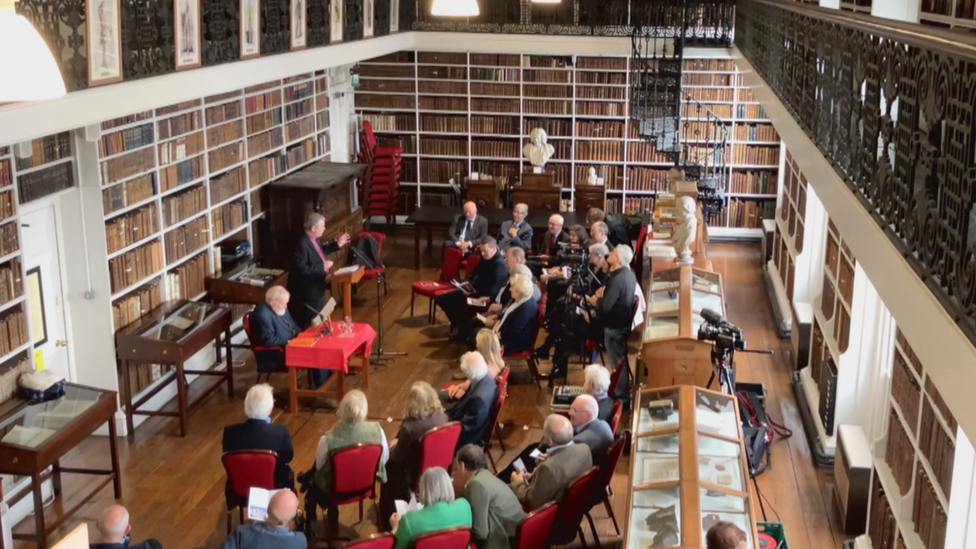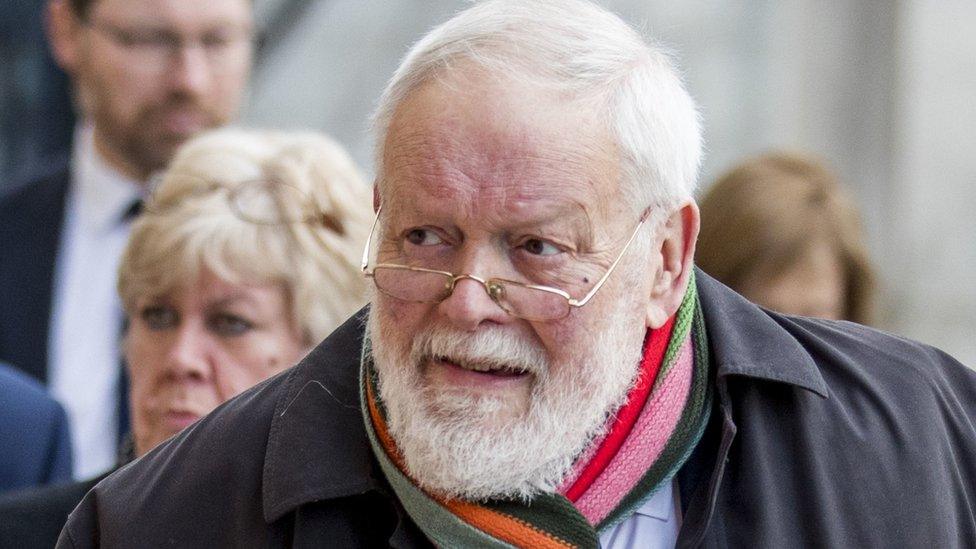Michael Longley: Literature should not be changed to remove 'complexities'
- Published
Michael Longley: Poet says literature should not be changed
The poet Michael Longley has said that the "complexities and difficulties of literature" must not be simplified to fit changing outlooks.
He was speaking after an event in his honour at Armagh's Robinson Library marking his Feltrinelli International Prize for Poetry last year.
At the event the 83-year-old reprised the lecture he gave in Rome in November where he accepted the €250,000 prize.
Speaking to BBC NI he described himself as something of an accidental poet.
"Once you have written a few poems you become addicted," he said.
"I'm always reluctant to call myself a poet. When people begin a sentence with: 'As a poet I,' I can't take them seriously because that's like calling yourself a saint and if someone said: 'As a Saint', you would tap your head as if they were a bit odd, a bit self-centred.
"I mean, it's what I most want to be and I like it when other people call me a poet, but I'm not going to call myself a poet."
Throughout his career he has witnessed huge societal change.
In recent times there have been examples of the re-editing of works of literature to fit modern outlooks.
'Beautiful things are difficult'
This is something Longely is uneasy with.
"There's an attempt, various attempts, by ill-advised educationalists to apologise in a way for the complexities and difficulties of literature by simplifying them or replacing them with more simple-minded writing," he said.
"I think it was Plato who said 'kalepa ta kala' - that beautiful things are difficult."

With that in mind he believes that poets must stay true to their work if they are to produce memorable pieces.
"If you sit down to write a great poem you will write rubbish," he said.
Longley has also won the Whitbread Poetry Award, the TS Eliot Prize and the Queen's Gold Medal for Poetry.
In 2001 he received the Queen's Gold Medal for Poetry, and in 2003 the Wilfred Owen Award.
He was appointed CBE in 2010.
He was awarded the freedom of his native Belfast in 2015.
'True poems'
Longley told the BBC: "I don't think you can teach poetry. Creative writing classes might shorten the apprenticeship but I think good poems are a rare event and I think good poets are rarer.
"If you are really writing well there is the space between the lines where what is happening - that you don't understand and nobody understands, will in a mysterious way be registered.
"In other words, you don't write true poetry by sitting down and saying: 'I want to write a true poem about the Northern Irish problem or Rwanda or wherever'.
"True poems, it's very mysterious where they come from."
Related topics
- Published3 July 2022

- Published27 December 2018
